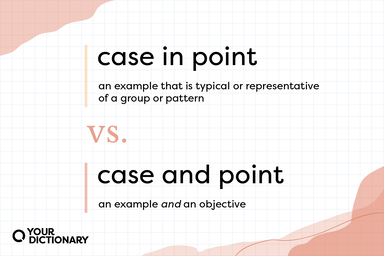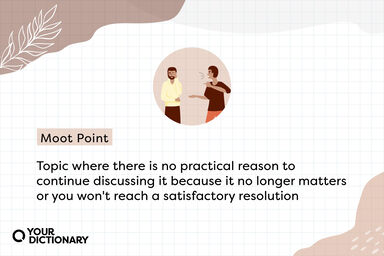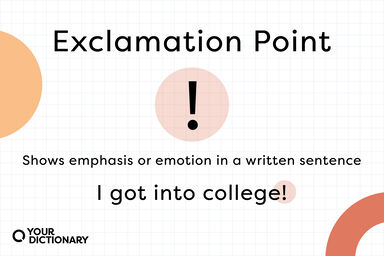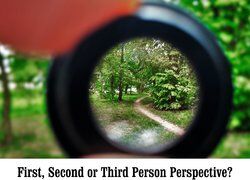Point Definition
- Irrelevant to the matter at hand.
- Having relevance or pertinence.
- With reference to; in the matter of:
In point of fact, I never lived at the address stated on the form.
- To consider or treat (an action or activity) as indispensable:
made a point of visiting their niece on the way home.
- To make an exception.
Idioms, Phrasal Verbs Related to Point
- beside the point
- in point
- in point of
- make a point of
- stretch a point
- to the point
- at the point of
- beside the point
- case in point
- in point of
- make a point of
- on the point of
- stretch a point
- up to a point
- to the point
Origin of Point
-
Middle English partly from Old French point prick, mark, moment (from Vulgar Latin punctum) (from Latin pūnctum) (from neuter past participle of pungere to prick) and partly from Old French pointe sharp end (from Vulgar Latin puncta) (from Latin pūncta) (from) (feminine past participle of pungere to prick peuk- in Indo-European roots)
From American Heritage Dictionary of the English Language, 5th Edition
-
From Middle English point, from Old French point (“a point, dot, full stop, period, speck, hole, stitch, point of time, moment, difficulty, etc."), from Latin punctum (“a point, puncture"), prop. a hole punched in, substantive use of punctus, perfect passive participle of pungō (“I prick, punch"). Displaced native Middle English ord (“point"), from Old English ord (“point").
From Wiktionary
Find Similar Words
Find similar words to point using the buttons below.





